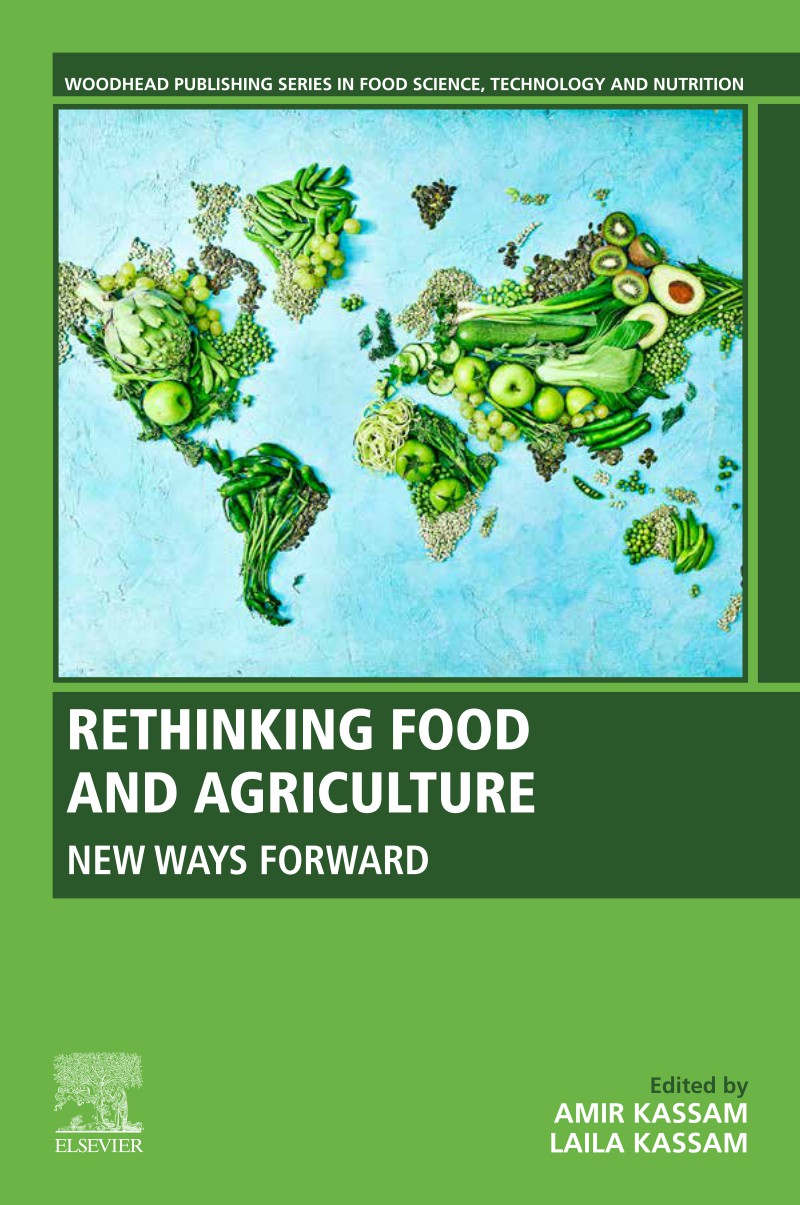This unique and outstanding book is treasure trove of knowledge and discusses the ways and urgency of changing to and implementing new paradigms related to recovery, resilience, and rebuilding food systems to tackle new as well emerging land challenges and elevated environmental risks and impacts. The editors have gathered eminent authors and world-leading scholars to deal with these issues and propose more holistic approaches and schemes for transforming agricultural and food systems, revitalising livelihoods, and expanding awareness across scales and actors. The book reviews with great pertinence and momentum the historical and philosophical development of conventional agriculture and the associated socialisation and sectorisation of policies, innovation, and social movements. Multiple approaches are drawn from the different chapters exploring a range of interconnected challenges, complex subjects and socio-ecological arrangements related to agriculture, food, biodiversity, and ecosystems.
The book argues for systemic and radical change in food systems and agriculture space but also in policy/decision-making processes. It set the pillars for a new nature and ecology-based direction and explores an integrated and inclusive vision for promoting innovative food systems that can fill the sustainability gaps left by conventional “modern” agriculture while spurring progressive benefits and synergies for society and economy.
The book is highly inspirational, debating and discussing wide-ranging thoughts, landmark experiences and innovative ideas and solutions to drive forward to the future of agriculture and food systems. Progress toward sustainable food systems has been addressed in all aspects and considering major priorities.
The book is a rallying call to accelerate the transition to regenerative agriculture. The book insists on new business models that may bend with traditional knowledge to stimulate increased sustainability and stronger development and economy. It discusses the dilemma between ecology, capitalism, and new agricultural economy. The authors have given plenty of space for discussing political, ethics, financial investments and values around modern/industrialized agriculture and its development as they also addressed issues related to controversial roles of international organizations in affecting policies and social contexts (and relations) of production, consumption, and regulation of food.
The authors have also discussed and analysed food systems and regimes and their changes and transformation over time and contexts and special attention was given to ethics, sustainability and efficiencies of animal agriculture and animal-based diets. The book asks and sheds light on important changes that are happening and forecasted in the global food system and scenarios for achieving and improving sustainability and resilience.
The book is presented in inspiring but persuading ways to launch debate and spark discussion on transition to food system models that are just, ecological, durable, and regenerative. In fact, the food systems should be considered as solutions rather than problems (or drawbacks) to global changes. The book is presenting real farming (mainly based on agroecology and Conservation Agriculture) as opposed to intensive or factory agriculture as feasible options that can support and propel such models (and solutions) within planetary boundaries while dealing with the root causes of unsustainability and vulnerability of agricultural/food systems.
The book makes a special emphasis on Conservation Agriculture, also called the fifth revolution, due its revolutionary impacts on soil health build-up and climate change adaptation and mitigation. The book also underlines the importance of localization (as opposed to globalization), biodiversity, local seeds and plant-based diet patterns for responsive health and nutrition security. An intense examination and discussion is given on industrial Green Revolution impacts (achievements and failures) and capacities of real farming to satisfy food security and its pillars and defeat climate and environmental change. The book examines knowledge systems and the changes in mindsets, behaviours, believes and reflexivity of farmers (and stakeholders) but also their heresies as they shift in paradigms and practices.
The book is highly recommended for academicians, researchers and writers in agricultural sciences and food studies and agri-food economy and policies but also to policy and opinion makers and advisers.
